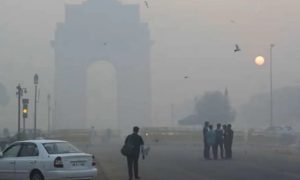India’s statement on the new Taliban government in Afghanistan came at the 2+2 ministerial meeting with Australian foreign minister Marise Payne and defence minister Peter Dutton.
In India’s first statement on the formation of the new Taliban government, external affairs minister S Jaishankar said India was concerned about “inclusiveness” in Afghanistan’s new “dispensation”.
Jaishankar’s comments came during a press event after India and Australia’s ‘two-plus-two’ ministerial talks. Jaishankar and defence minister Rajnath Singh interacted with their Australian counterparts Marise Payne and defence minister Peter Dutton.
Both countries agreed that the situation in Afghanistan was a central concern, while also sharing views on a free, open and secure Indo Pacific as well as East and South China Sea.
India’s statement on inclusiveness in the new Taliban government was supported by Payne, when she said Australia too was concerned about the status of women in Afghanistan. Besides, Afghanistan should not become a “breeding ground for terror groups”, she added.
The all-male interim government of the Taliban, announced on September 7, was to be inaugurated on Saturday, the 20th anniversary of the 9/11 terror attacks in the US. The ceremony, however, was cancelled at the last moment due to pressure from the military group’s Doha counterparts.
The two countries also stressed on the importance of combating terrorism without compromise. Jaishankar said, “Today is the 20th anniversary of 9/11, it is a reminder, if one is still needed, of the importance of combating terrorism without compromise. Close as we are to its epicentre, let us appreciate the value of international cooperation to that end,” he said.
Dutton said Australia, too, would like to start by remembering the victims of the 9/11 terror attacks, while his Indian counterpart Singh said remarkable progress had been made in India’s defence relationship with Australia.
Dutton said the defence relationship of the countries were at a “historic high” with free and open access to sea lanes. Payne said, “Ships of our navies are exercising together… Our mutual logistics support agreement also helped us get oxygen to India.”
The two sides also discussed the situation in Afghanistan at length. “Last month did see the fall of Kabul and along with the ongoing fight against terrorism, the future of Afghanistan remains a central concern to both our countries,” Payne said.
The talks took place amid renewed efforts by the Quad member countries to expand cooperation in the Indo-Pacific region. Besides India and Australia, the Quad comprises the US and Japan. Jaishankar said a term like NATO was a “looking back term”, and the Quad was the way forward.
On the “frustration” of international students amid Covid-19, Jaishankar said it was “understandable”. “We discussed the matter in detail. We are having problems with other countries as well — US and Canada. We will make this a priority,” he added.
Payne said, “I live and work in western Sydney. We have 60,000 students still in Australia. The desire for on-campus experience is understandable, but travel restrictions have not just impacted students but also ministers.”
She also said Australia was on its way to vaccinating Aussies that will help get students back. “…I will be the first to welcome students at the airport when they return,” Payne added.
(With agency inputs)





































